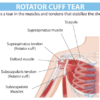Understanding Postpartum Depression: An Ayurvedic Perspective
Introduction
Understanding Postpartum Depression: An Ayurvedic Perspective is a complex condition affecting many new mothers after childbirth. Characterized by feelings of extreme sadness, anxiety, and fatigue, PPD can significantly impact a woman’s emotional and physical health. While conventional treatments such as therapy and medication are commonly prescribed, Ayurveda, the ancient system of medicine from India, offers holistic approaches that focus on restoring balance to the body and mind. In this blog, we will explore PPD through the lens of Ayurveda, discussing its causes, symptoms, and various Ayurvedic remedies.
What is Postpartum Depression?

Postpartum depression is not just a fleeting mood change; it is a serious mental health condition. It can manifest within weeks of delivery and may last for several months if left untreated. Symptoms can include:
- Persistent sadness
- Irritability and mood swings
- Difficulty bonding with the baby
- Changes in appetite and sleep patterns
- Feelings of inadequacy or hopelessness
- Anxiety or panic attacks
Understanding the root causes of PPD is crucial. Factors can include hormonal changes, physical fatigue, emotional stress, and the challenges of adjusting to motherhood.
The Ayurvedic Perspective on PPD
Ayurveda views health as a balance between body, mind, and spirit. It recognizes that postpartum women experience a significant transformation, and this can lead to imbalances in the body. In Ayurveda, postpartum depression is often linked to the concepts of “Vata,” “Pitta,” and “Kapha,” the three doshas that govern our physical and mental states.
Vata Dosha Imbalance
After childbirth, a woman’s body can experience an increase in Vata dosha, which is associated with air and space. Vata governs movement, and its imbalance can lead to anxiety, restlessness, and emotional instability—common symptoms of PPD.
Pitta Dosha Imbalance
Pitta dosha, associated with fire and transformation, can become imbalanced due to the stress of childbirth and recovery. An excess of Pitta can lead to irritability and frustration.
Kapha Dosha Imbalance
Kapha dosha is linked to stability and nourishment. After childbirth, if a mother does not receive adequate support and care, Kapha can become depleted, leading to feelings of lethargy and sadness.
Ayurvedic Remedies for Postpartum Depression
Ayurveda offers a range of remedies to help restore balance and promote mental wellness in postpartum women. Here are some effective strategies:
1. Dietary Adjustments
Nourishing Foods: After childbirth, it’s essential to consume a diet rich in nourishing, warm, and grounding foods. Foods high in healthy fats, such as ghee and nuts, can help balance Vata. Incorporating whole grains, lentils, and seasonal vegetables will support overall well-being.
Herbal Infusions: Ayurvedic herbs such as ashwagandha, brahmi, and shatavari are known for their adaptogenic properties, helping to reduce stress and promote mental clarity. These can be consumed as herbal teas or added to meals.
2. Lifestyle Practices
Gentle Yoga and Exercise: Engaging in gentle yoga can help alleviate stress and promote emotional balance. Poses that focus on grounding and calming the mind, such as child’s pose and savasana, can be particularly beneficial.
Meditation and Breathing Exercises: Practices such as meditation and pranayama (breath control) can help stabilize emotions and reduce anxiety. Simple techniques like deep breathing can be practiced daily, promoting relaxation and mental clarity.
3. Abhyanga (Oil Massage)
Abhyanga, or self-massage with warm oils, is a cornerstone of Ayurvedic practice. Using oils like sesame or coconut, a gentle self-massage can help ground Vata, promote relaxation, and enhance overall well-being. This practice not only nourishes the skin but also soothes the mind, providing a calming effect.
4. Supportive Therapies
Ayurvedic Panchakarma: Panchakarma is a detoxification process that can help restore balance in the body. A trained Ayurvedic practitioner may recommend treatments tailored to the individual’s needs, such as herbal steam treatments or oil therapies.
Sound Therapy: Sound healing, using instruments like singing bowls or chanting, can help harmonize the body’s vibrations and promote emotional healing.
5. Community and Emotional Support
Seeking Support: Emotional support from family and friends is vital for new mothers. In Ayurveda, the concept of “samskaras” (rituals) emphasizes the importance of community during the postpartum period. Engaging with supportive groups or therapists can significantly help in managing feelings of isolation and anxiety.
Rest and Recovery: In Ayurveda, the postpartum period is viewed as a time for rest and rejuvenation. Allowing new mothers to take the necessary time off to recover physically and emotionally is crucial for their mental health.
Conclusion
Postpartum depression is a multifaceted issue that requires a comprehensive approach for effective management. Ayurveda, with its holistic principles, offers valuable insights and remedies for addressing PPD. By focusing on diet, lifestyle, and emotional support, new mothers can work towards restoring balance and nurturing their mental health during this critical period.
If you or someone you know is struggling with postpartum depression, consider exploring Ayurvedic remedies in conjunction with professional medical advice. Remember, healing is a journey, and seeking support is a significant step towards wellness.
By embracing the wisdom of Ayurveda, new mothers can not only manage their mental health but also cultivate a deeper connection with themselves and their newborns. Ultimately, this journey toward balance and well-being can lead to a more fulfilling motherhood experience.








Leave a reply